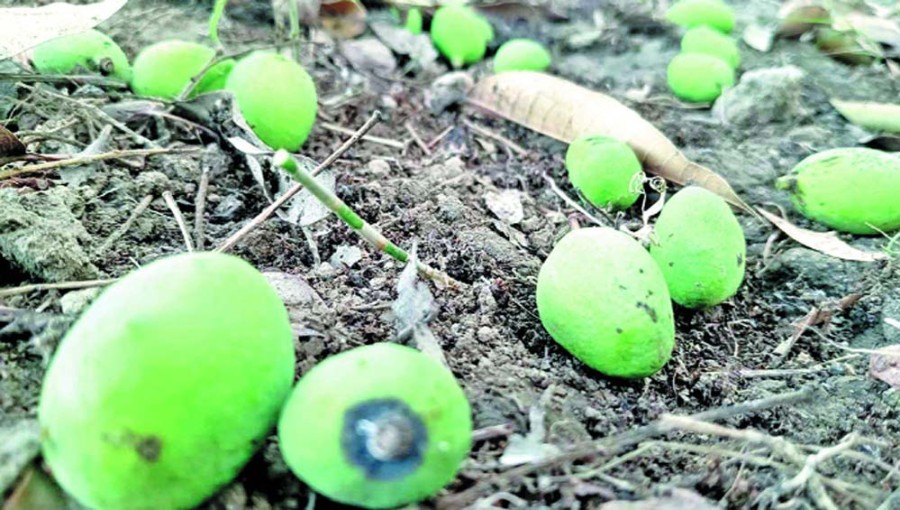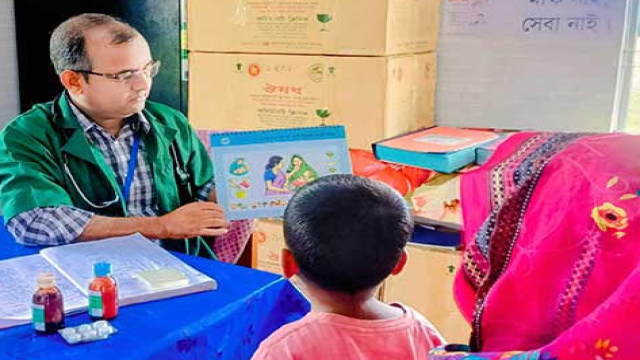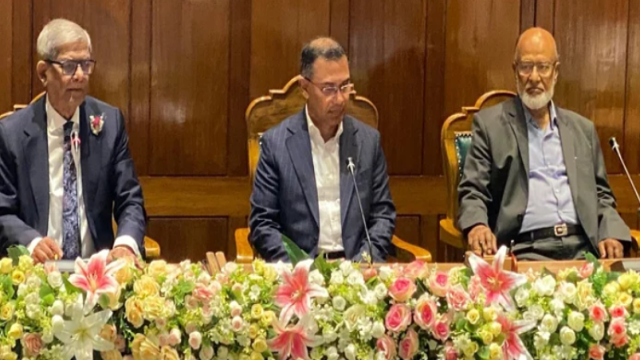Chapainawabganj, renowned as the country's mango capital, faces the grim prospect of fruit failure this year as a relentless heatwave sweeps through the region. Mango cultivation, already impacted by lower yields in an off-year, now faces further jeopardy as the scorching heat causes immature mangoes to drop prematurely from trees.
Despite farmers' efforts to irrigate and control the situation with pesticides, mangoes continue to fall, raising serious concerns about the district's mango output. The challenges began earlier in the season with excessive cold delaying mango bud emergence, followed by untimely rains during the blooming stage, destroying many buds and reducing fruit production.
Farmers, disheartened by these setbacks, now struggle with the harsh heatwave. Visits to several orchards reveal a distressing scene: small mangoes scattered on the ground instead of hanging healthily on trees. The lack of rain has stunted their growth, leaving them significantly smaller than usual. Some fortunate farmers have installed diesel-powered irrigation machines, while others helplessly watch their mangoes succumb to the harsh weather.
Abdur Ahad, a local mango grower, expressed his worries: "This year, we had very few mangoes due to scarce buds. Now, the situation worsens with the drought. Despite irrigation and spraying, I can't seem to stop them from falling. The lack of rain is hindering their growth."
Abdur Rakib, another grower, echoed Ahad's concerns: "The intense heatwave is causing mangoes to fall. I've sprayed them thrice, and production costs are skyrocketing. If the yield is affected, I face significant financial loss."
Shamima, a grower from the area, painted a bleak picture: "The condition of mangoes is dire. We won't achieve our cultivation goals. It seems there will be a mango fruit failure this time."
Palash Sarkar, deputy director of the District Agricultural Extension Department, outlined the contributing factors: "We observed a significant decrease in mango bud formation. Fog in February and March, followed by rain and hailstorms, damaged flowers. Now, the intense heatwave exacerbates mango drop. Future hailstorms and Kal Baisakhi storms pose further threats."
According to the Department of Agriculture, mango cultivation in Chapainawabganj this season covers 37,604 hectares, targeting 4,50,000 tonnes. Last season produced 4,43,625 tonnes. The current heatwave significantly jeopardizes exceeding or even meeting last year's production. This plight underscores agriculture's vulnerability to extreme weather events and the urgent need for climate-resilient practices to protect future harvests.































Comment: